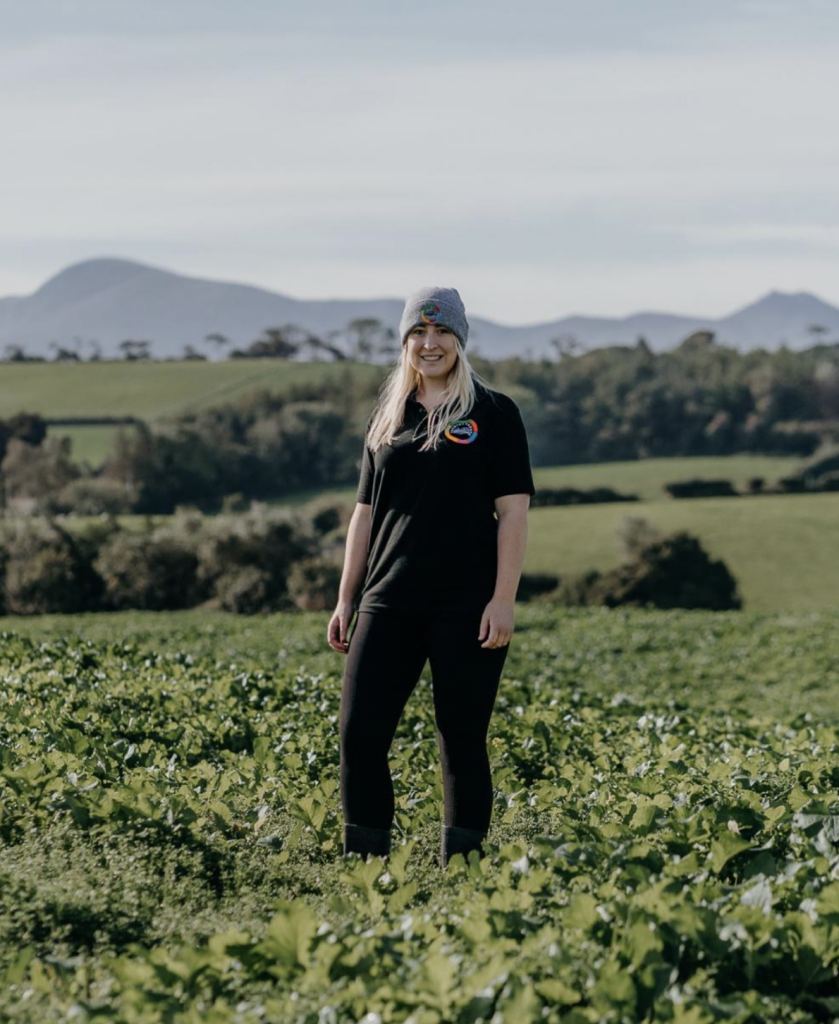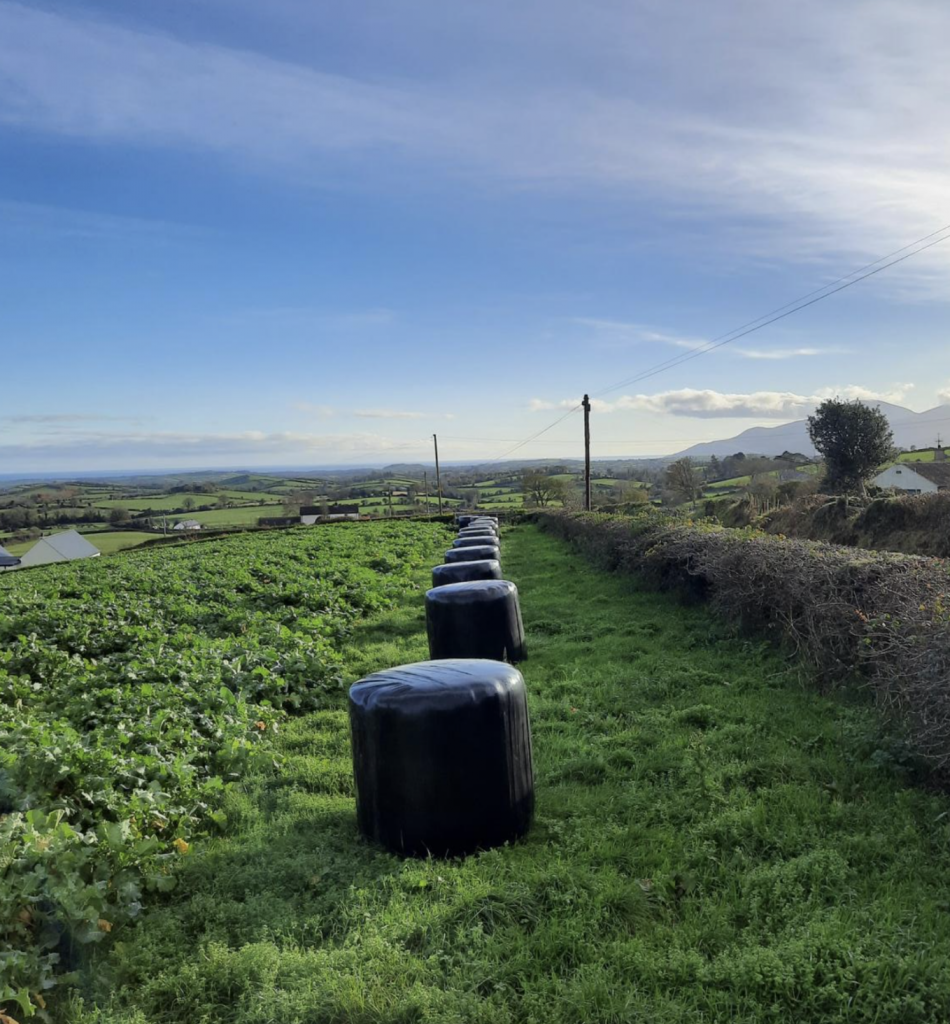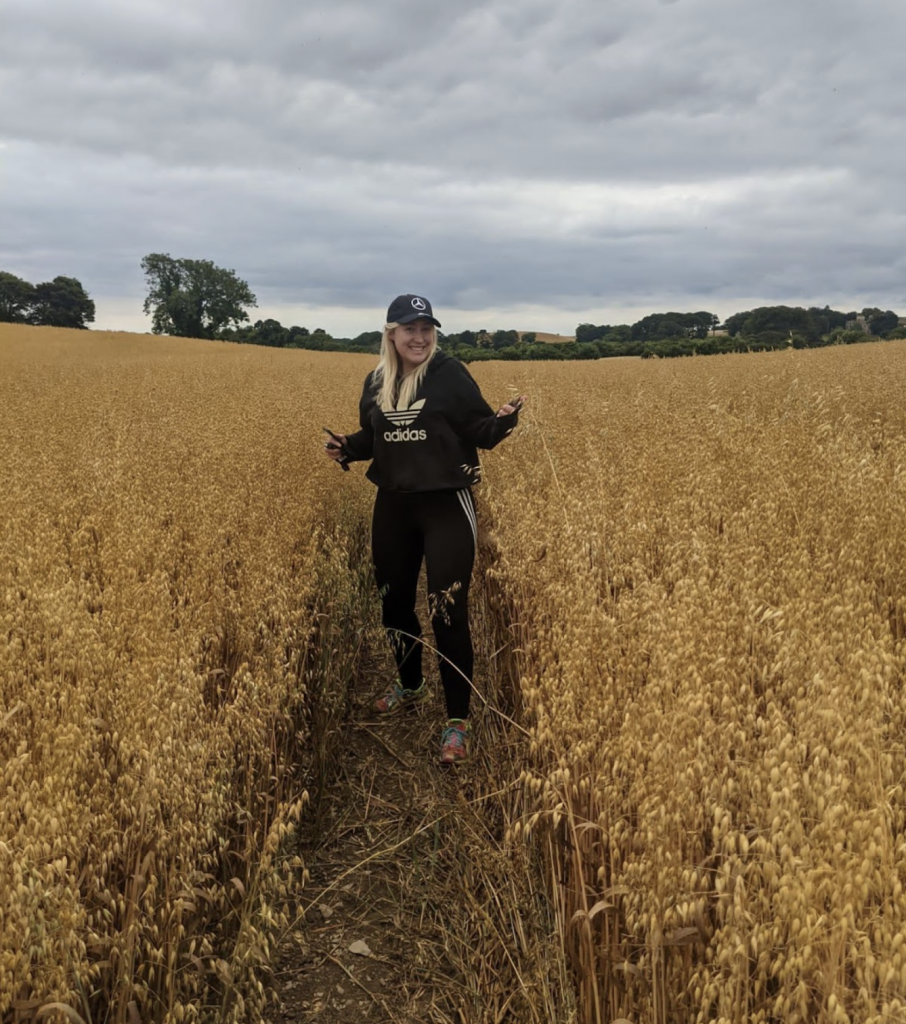We are chatting to ex-yachties, to find out how they have experienced life after yachting. Discussing the ups and downs of their careers, we find out how they have transitioned into land-based work, and how you can do it too. Today, we are talking to Stephanie McEvoy, an ex-stewardess who is finding success with her new business, Farming Carbon, after leaving the yachting industry.
Tell us a bit about yourself
I’m Steph from Northern Ireland. The Superyacht industry was such a fun way to spend my 20s and the people, crew and guests that I experienced encouraged my positive outlook and belief that anything is possible if you put your mind to it. I have set up a company in which we are researching a solution for climate change through farming practices and developing ‘digital twin’ technology to quantify the environmental impact of our initiative. To fully serve our clients, we have a range of social initiatives which include an educational course for smallholder farms, delivered in an accessible way and engagement with schools to help young people tackle eco-anxiety and inspire hope.

How long were you a yachtie, what was your role on board and what yachts did you work on?
I worked on boats for 5 years, from stewardess through to chief stew. The boats I worked on were Albatross, ICE, Predator and Jo.
When did you leave the Superyacht industry, why did you leave and did you leave with an exit strategy as to what land-based job you’ll transition to?
I left the Superyacht industry in August 2020. I had spent a bit of time at the early stages of the pandemic at home, so when a mechanical failure meant that our summer season was cancelled, it offered an opportunity to spend more time with family and move home. The decision was not initially definite or permanent – for the most part, it was more of a trial while we were still in the height of Covid-19 and countless lockdowns. Before leaving the industry, I hadn’t given any consideration to what I might do next. The term “Winging it” comes to mind. I ended up moving in with a friend, loved being at home and found a good job quite quickly. Initially, I got a job as a remote bid writer for a construction company. Which sparked the realisation that there was a business case and budget to invest in Environmental and Social Impact.

What is your current job role and where are you based?
I am the founder and operations manager of Farming Carbon. A start-up which is developing the digital infrastructure to prove that farming can be a solution for climate change when it is done correctly. We have a 70-acre test farm (expanding to 180 acres) where we are developing real-time data streaming to verify our impact. We collaborate with local universities, businesses, politicians and government departments to scale the impact of our solution and incite real change. Farming Carbon offers subscription services for individuals who want to make a difference and offers businesses a way to demonstrate a commitment to social and environmental innovation.
My office is mobile, some days I am in the fields with the farmer or NGO surveyors, other days I’m in board rooms pitching to business. Travelling around Northern Ireland is a part of the role that is rewarding, it feels like making up for lost time for the 7 years I had lived in other places.
Was transitioning to a land-based role scary? Did you encounter any issues along the way? If so, how did you overcome these challenges?
My expectations were never set in stone, and because the world was going through such stressful times with travel restrictions, vaccine certificates and general confusion, the stress of adjusting to a big change, moving home seemed small in comparison to the stressful alternative, trying to manage a team through such uncertain times. So the transition wasn’t scary, but there were a lot of things to get
used to.
One thing I continue to miss about the yachting industry is the outlook of the people within the industry. Yachting has disproportionately high levels of dreamers, explorers and people who are energised for life. The impact of mundanity being normalised here (go and get a steady, secure 9-5), is that people tend to be more cynical, and critical of big ideas and following dreams. I am grateful for my close family and friends who fill me with encouragement.
This will sound silly, but when I moved back it took a bit of an adjustment to realise that my presence wasn’t a special occasion anymore. It was harder than usual to get everyone together to do things – because before living here, my friends and family all would have made an exception for something that was planned. Although the trade-off is that I can now call in for a cuppa with friends and we can casually catch up without having to allocate time within an itinerary, which was the case when I was only back for 48 hrs and wanted to see everyone.
The difference in salary is quite stark, but is easier to adjust to because there are no social expectations to “live like a yachtie”. No one wants to go out for Michelin star meals on a Tuesday evening. The biggest difference in terms of finances for me was the volume and admin of bills, services, and responsibilities. Adjusting to having a budget because living on board with no overheads gave me a false expectation of how to manage my salary.
What is the most important lesson you’ve learnt since starting your own business? and What is the most valuable skill you learned on board that helps you in your job now?
Perseverance and committing to my values. There is a book called “The Values Factor” by John D Martini which I would recommend to anyone. Now that I have a job that is aligned with my values it inspires me to persevere even when the times are tough. My perseverance and having a good attitude in the face of adversity were perfected during my time as yacht crew.
My experience in service prepared me for being confident to approach business leaders and key people of influence in our journey of growth. The product I have to offer might have changed but I am still bringing something that everybody wants to the table, similar to the feeling of bringing cool drinks to the aft deck on a hot day.
Teamwork is a skill that is imperative across roles in yachting and is crucially important for my role now as I am facilitating multi-disciplinary collaboration between our stakeholders.
My time on board taught me the power and beauty of nature. An A-ha Moment during a storm in the Gulf of Lyon – forceful waves lifting and carrying the boat, and we would involuntarily be displaced in whatever direction the sea desired. The natural world is so powerful, our weather patterns are so strong and we would be foolish to think that we can outsmart it with wit or cleverness, because that kind of strength, the kind we are seeing across the world, with cyclones, floods, storms and fires. Any person who has experienced this up close and personal can surely understand my contemplation that we don’t have an option of not working with nature.
You’re either with her or you’re wiped out. Farming Carbon is about working with nature, proving how effective it is with our data and then quickly scaling massive change across agriculture and land management in the UK & Ireland.

If you could go back to the start of your career, name 2 things you would do differently? i.e., financial choices, ways you would have enhanced your cv, extra courses, and so on.
I am not sure if I’d change anything along the way. This is the part where I could say it would be sensible to save your money, but there has to be balance to that – don’t save at the expense of exploration and embracing all the beautiful places that yachting offers. On reflection, the people who sat in their cabins hungover, or spent the weekend lying around the crew mess missed out on so much. It’s a good idea to work out how much you would need to cover your bills for 6 months if you lost your job in the morning.
Difficult experiences on board can feel personal – it’s work but it’s also where we live, and the people we socialise with. I’d love someone to have told me at the beginning, to reframe your difficult experiences as opportunities to learn. Don’t take things personally and be honest with yourself when you experience criticism, if it was justified – learn, adapt and grow. Bear in mind that someone can criticise you, or you can feel like you are being attacked, and it has nothing to do with you. Consider the source before taking it too personally.
Can you tell us more about Farming Carbon and how the concept came about and has your career influenced it? i.e., did your passion for sustainability stem from your life as yacht crew?
Any service stews will be able to relate, but for every food item that we serve on board, we would have a near encyclopaedic of how it was prepared, where it was from and what made “this aubergine” better than “that aubergine”. Organic is indicative of quality and chemical-free produce. The passion communicated by the amazing chefs on boats is the same energy and expertise that my business partner, the farmer at Farming Carbon speaks with. The process of how our food becomes food should not be alien to us, and it was the ceremony of food presentation and preparation on board yachts that had me appreciate the journey that food makes to get to our tables.
Onboard, in winter or downtime, I was constantly engaged with environmentalist content, Nat Geo, or Podcasts, listening to audiobooks. It is such a luxury to have time to educate yourself while working. It’s been good fortune that I’ve always worked with passionate, informed and engaging crew who cared about the world around us and it would have often been a conversation at lunch or dinner. Stimulating conversation with open-minded people from across the world can be a better education than years in school.
When working on board Pred, we were engaged with local initiatives, organising beach clean-ups, cycling everywhere, and on one boat our crew would have organised regular pub quizzes with a contribution to 4ocean or local charities. Communities get more done, working together is better than in silos and I always found that our crew rallied around to make a good idea a reality.
Farming Carbon is the culmination of the years I have spent obsessing over food and wine. We are always working on improving the guest’s experience, seeing things through their eyes to provide as much value as possible. All of these are mirrored in Farming Carbon. We are developing a functional food system that is conducive to flourishing biodiversity. This creates experience and value for the communities that live on or near the farm areas and the diversity of species improves the resilience of the ecosystem in the face of further climatic events.
Where is Farming Carbon heading and what is your main goal for the next 5 years?
We are working on the digital infrastructure for the business at the moment and once we have that we can quantify the impact of the regenerative practices and get a better idea about how impactful they are.
We hope to improve our resources for selling direct to consumers, providing educational content, affordable courses and hosting seminars. We need a massive re-education of society to make speedy progress with climate issues. Our subscriptions start at 17p per day – but we want to improve the value we offer our customers.
We will continue to work with businesses in the UK & Ireland, hoping to expand further afield. We are already in conversation about educational resources that could be shared internationally in collaboration with some NGOs. Farming and food production is more essential than any other societal role. We only see a doctor when we’re sick – we need farm produce for nourishment a few times a day!
As our technology matures and we have the digital twin developed, and scale across other locations to verify the findings of the data. From there we will be better placed to make policy recommendations and hope that our data would be utilised by meteorological, environmental and other national-scale data systems.
Lastly, can you share 3 pieces of advice for green/entry crew on how to begin making sustainable choices in their yachting career:
- Explore more! Make the most of every port. Sometimes yachties fall into the trap of going to the “yachtie” bar and seeing little else of the local beauty. I’d recommend breaking away from the crew into smaller groups and seeing the places you visit the way that the locals do as well as having the big nights with the whole crew. There is far more chance of connecting with local people for genuine experiences when you are a smaller group and going off the beaten track! Reach out on insta if you want any of my faves “off the beaten track” recommendations on the French/Italian Riviera.
- Always be striving for most people on board, particularly in downtime or winter, you can choose to fill the space between your ears with useful information or nonsense. I love an impromptu disco as much as the next person but would recommend continuous learning, through podcasts, audiobooks, or any other means. If you’re scrubbing all day – you can stimulate your mind with subjects you’re passionate about, and this can serve you in terms of life and career opportunities in the future.
- Do Little and Often. Save little and often, Give little and often, Meditate/work out/whatever it is that you want to do – the first step is to do it consistently, even if in a small way. I studied French and Italian while on board for a few hours a week. Nothing transforms overnight but taking consistent steps in the right direction helps your outlook and empowers you. It’s the same for investment or learning skills that can be applied in life after yachting.

To hear more about life after yachting, click here


.gif)


















